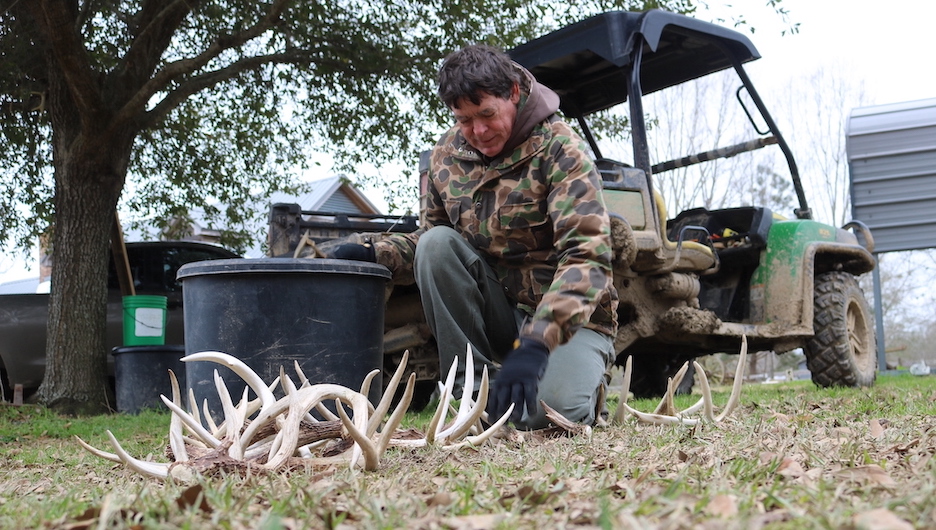Antler Madness: Deer Shed Thieves Poach Farmland, Private Property
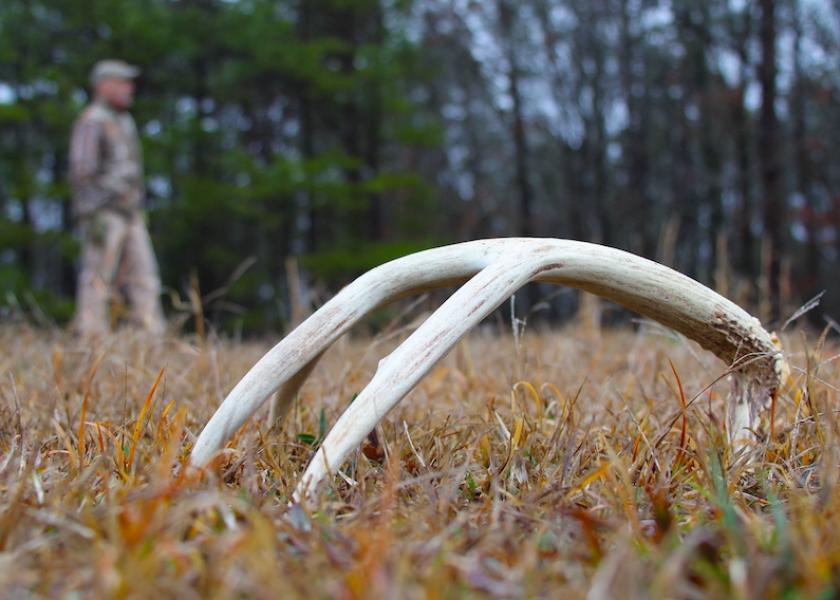
Lust or greed, many a trespasser is drawn to farmland by deer sheds. In late winter or early spring, when antlers drop, the lure of shed treasure is a powerful pull to the public, despite purple paint, posted signs, and fences.
Farm to farm and region to region, reactions vary—from tongue lashings to hot pursuit to prosecution. Tony Washnock—a gentleman farmer with land in Illinois, Florida, and Arkansas—sees a spectrum of response.
“I’ve always been curious about farmer and landowner reactions in different states,” he says. “I’ve found attitudes to shed stealing can range from harsh to mild, but everyone knows a seemingly small problem can get big fast.”
Antler Addiction
Every year, buck fever is followed by shed fever. From January to April, whitetail deer lose their antlers. On cue, in the South and Midwest, shed hunters strapped with binoculars haunt the backroads in ATVs, or trek through farmland or woods checking trails and bedding areas. (The West is an entirely separate antler universe of whitetails, mule deer, and elk—a high-stakes, bone wonderland.)
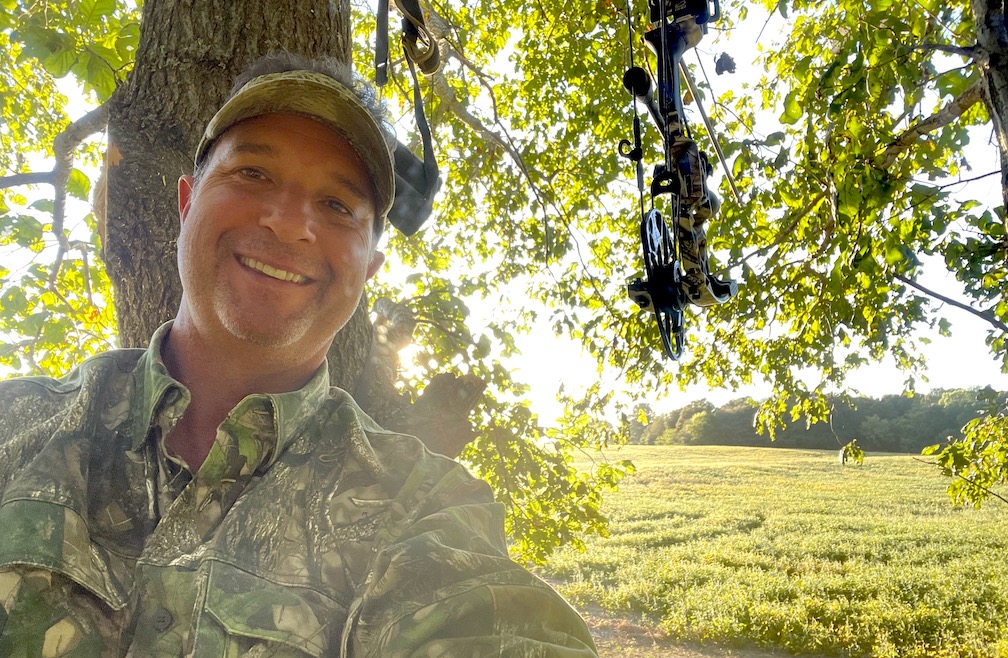
Inevitably, trespassers search for sheds—fresh, aged, chewed, scraped, muddy, or clean. “We’ve all seen how it’s done,” Washnock says. “In Illinois, often you’ve got guys going up and down public township roads beside farmland in far-off places. They look from side-by-sides or 4-wheelers and when they spot an antler—near or far—in somebody’s field, they go get it with or without permission.”
The sheds can be of significant monetary value if remarkably unique, unusually sized and paired, or in substantial quantity. They also reveal the presence of monster deer: “There are a lot of issues around sheds and trespass, and one of them is the one-two punch of losing a big specimen,” Washnock explains. “After a trespasser finds a big shed, he is going to come back to find the other half, and if it’s big enough, let’s say a 200-incher, then word gets out fast to more outlaws and you’re going to end up with poachers on your land looking to shoot the deer that shed those antlers.”
(See In the Blood: Hunting Deer Antlers with a Legendary Shed Whisperer)
Washnock’s perspective is echoed by Illinois Wildlife Officer Chris Johnson. Illegal shed hunting, Johnson contends, rides shotgun alongside poaching: Prize shed equals prize deer.
“Sometimes when people sneak on private land, they want sheds for their hobby collections, but there is a deeper greed driving some people to illegally hunt sheds strictly to take advantage of other people’s property,” Johnson says. “By that, I mean the sheds are a means to big deer—regardless of whether they have permission.”
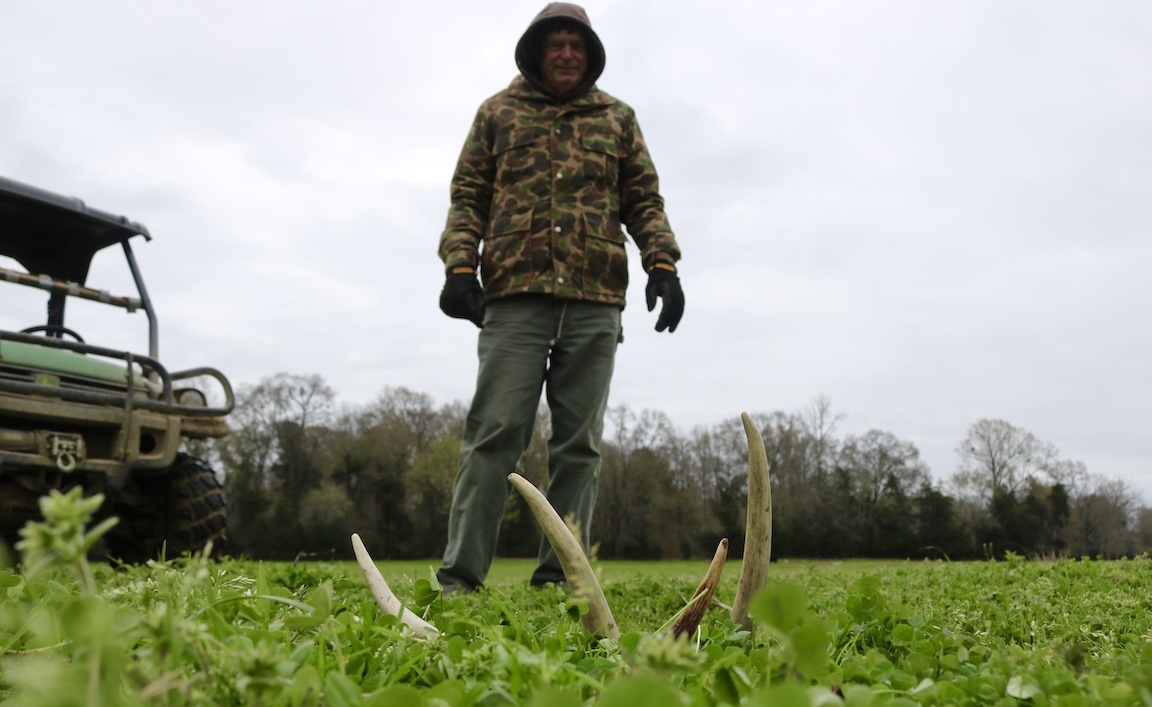
“The illegal shed hunting then leads to an increase in night hunting; an increase in trespass; and an increase in hunting without permission,” Johnson continues. “Again, that’s not always the case, but more often than not, the people who illegally take sheds are the same people who illegally hunt deer.”
“It’s hard to underestimate the greed generated by big antlers,” he adds. “I’ve seen guys take a big buck to a taxidermist, and guess what? The next year, who is hunting right beside them? The taxidermist. Big antlers get to be almost like an addiction.”
Farm or Flowerbed
Have tractor, will travel.
Headquartered in Saline County, Illinois, but operating across the U.S., Darrell Hafford helms Rocky Branch Outfitters, with multi-decade experience managing deer populations.
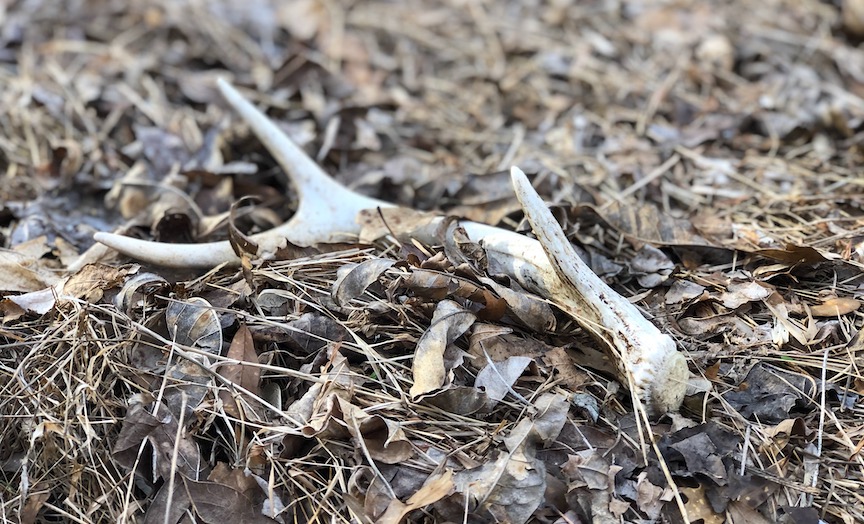
Highly respected in the industry, Hafford views shed hunting trespass as a violation deserving prosecution. “Every one of these guys that sneaks onto private land to find antlers knows what they’re doing is against the law. Some of them might try to say, ‘No harm. I’m just picking up a tiny shed off a giant piece of land.’ No sir. That’s an excuse because it doesn’t matter if it’s 1 acre or 1,000 acres, people know it’s wrong.”
Translated: The same man who trespasses and takes an antler from the rows of a 4,000-acre farm would be irate if a stranger entered his suburban yard and plucked an antler from the flowerbed or off the porch.
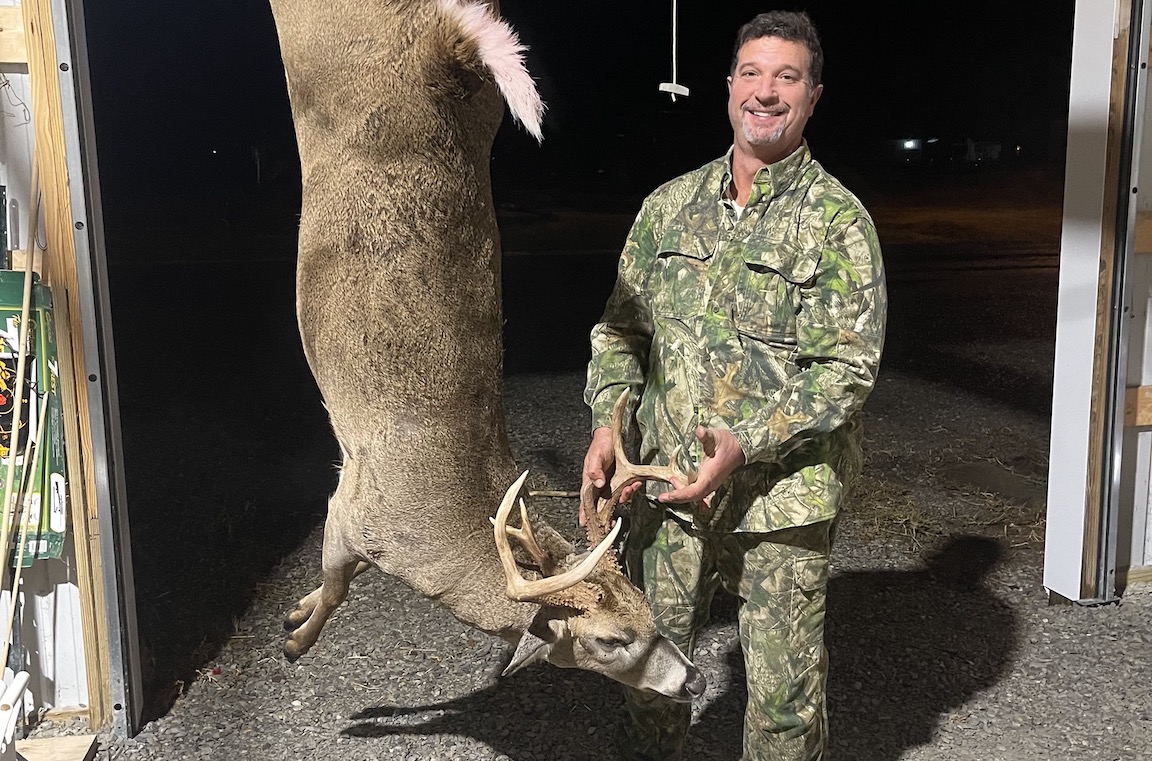
Hafford has one response to shed hunters: “I don’t believe landowners can afford to not act. I’ve found pictures of trespassers on my game cameras and I go straight to the wildlife officers. Maybe it’s the camera effect, but I haven’t had any recent problems. It helps to build a zero-tolerance reputation—word gets out.”
Press Charges
Penalties for hunting sheds without permission vary by state, but in Illinois, the violation typically falls under the wildlife code and results in a hunting-without-permission charge—a Class B misdemeanor—punishable by 9 points (13 points is a loss of hunting rights) and a $195 fine, along with court costs.
“The way the law is written, the penalty is more serious for stealing mushrooms off someone’s land because that’s not in the wildlife code,” Johnson says. “For example, there is no specific statute for unlawful take of mushrooms, and therefore that type of theft defaults to trespass under the criminal code, with a potential minimum fine of $500.”
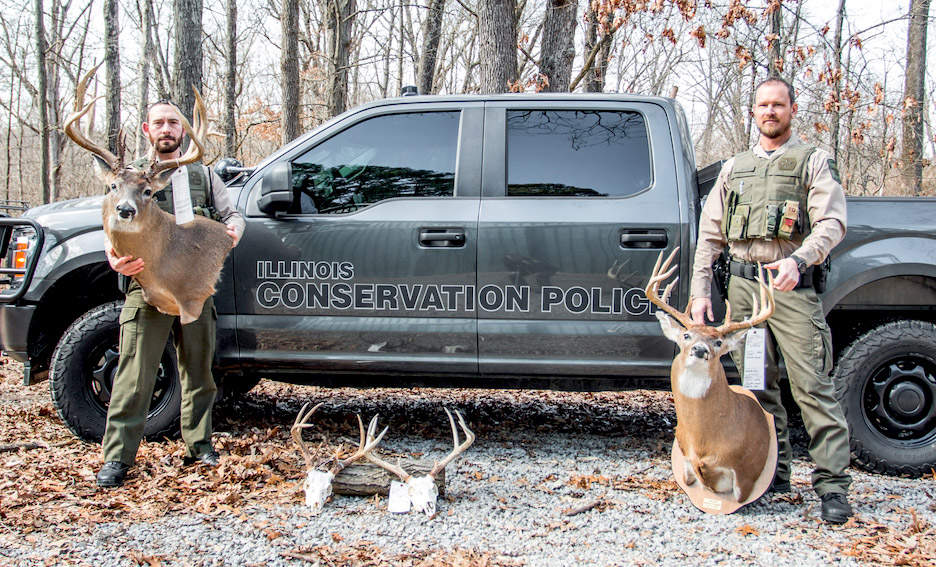
“It’s really rare to catch someone in the act and we don’t get many shed trespass calls,” Johnson adds. “Shed theft is absolutely going on, but everything is relative to when people are in the woods or on the land. A lot of landowning hunters pull cameras about mid-January, and when the shed hunters arrive, the cameras are gone and the land is relatively empty.”
Hafford advises landowners to seek prosecution when discovering shed theft: “I treat it very seriously. Pressing charges is the best policy for any hunter or farmer, in my opinion. Otherwise, you’ll see the thief on your land again.”
Boot Tracks
On farmland, particularly in areas adjacent to heavy whitetail populations, sheds consistently puncture machinery tires, a substantial cost and time-consumer.
“There’s nuance when you consider that many guys want sheds off their land because of tire damage,” Washnock says. “It’s very true that you can get into some expensive fixes to replace tractor or lime buggy tires. Therefore, on the one hand, it’s true that guys want sheds gone out of their fields, but on the other hand, guys don’t want them removed by strangers.”
(See In the Blood: Hunting Deer Antlers with a Legendary Shed Whisperer)
Raised in Louisiana, followed by residency in Florida, before spending the past decade in southern Illinois, Washnock says attitudes to shed removal follow a slight variance. “In my time in Florida and Louisiana, I’d say landowners were highly vigilant and adversarial, never hesitating to run off anyone who was even standing on a public right of way looking in.”
“However, Illinois is so much colder and it’s not nearly as easy to get out there and police your land. That goes beyond shed hunting to trespassers sneaking in to hunt morels, ginseng, or even arrowheads.”
“Shed stealing has always been an unfortunate part of farming and always will be, and I’ve always been curious about how it’s viewed in different regions,” Washnock concludes. “One thing for sure, nobody wants someone they flat-out don’t know on their property. No landowner wants to see out-of-place boot tracks in shed season.”
For more from Chris Bennett (cbennett@farmjournal.com or 662-592-1106), see:
American Gothic: Farm Couple Nailed In Massive $9M Crop Insurance Fraud
Priceless Pistol Found After Decades Lost in Farmhouse Attic
Cottonmouth Farmer: The Insane Tale of a Buck-Wild Scheme to Corner the Snake Venom Market
Tractorcade: How an Epic Convoy and Legendary Farmer Army Shook Washington, D.C.


